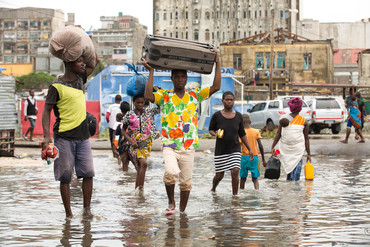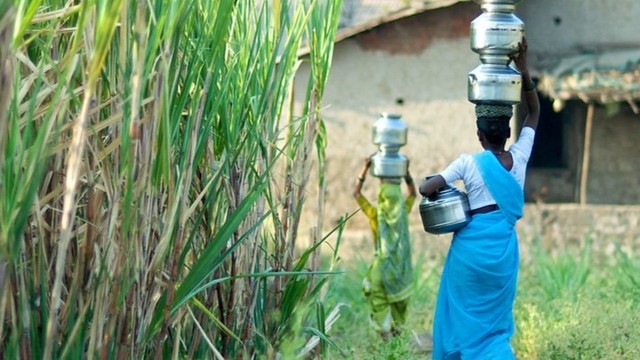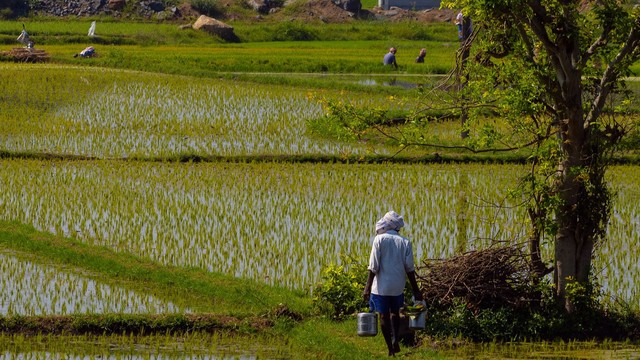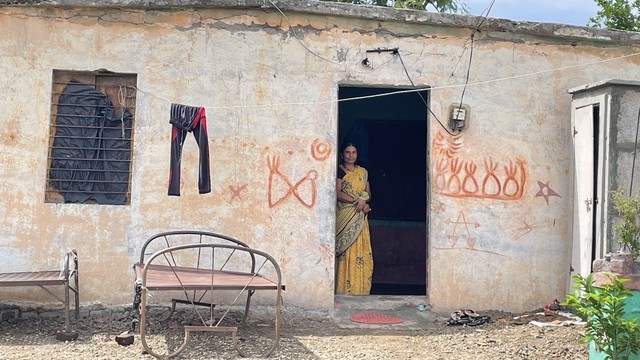Tackling loss and damage: practical solutions from the frontline
This IIED and UNDP event on 7 November discussed grounded, practical knowledge for tackling climate change loss and damage.

A man maintaining a solid barrier wall around a small group of graves with headstones, in Demak, Indonesia (Photo: Dhana Kencan/Climate Visuals, CC BY-NC-ND 4.0)
The world is grappling with unprecedented challenges caused by climate change, with vulnerable communities facing devastating impacts. Climate change has resulted in irreparable losses and damages to economies, homes, lands and people’s livelihoods, but also to health, cultural heritage, traditions and ways of life.
There is a critical need to understand and tackle loss and damage from both these economic and non-economic perspectives.
Localised, actionable research, and grassroots voices are more crucial than ever to inform effective policy measures and actions. To address this, IIED has conducted an extensive range of studies, developed tools, and created platforms that combine research rigour with real-life stories and experiences of those struggling with the effects of loss and damage.
This event, hosted in partnership with UNDP, provided practical, actionable insights. We shared case studies from local research institutions and experts to showcase experiences and highlight the resources needed for effective action.
The event heard from participants of the Grassroots Women’s Shared Learning Dialogues, carried out in partnership with Huairou Commission. Finally, there was the launch of the Loss and Damage Research Observatory, which aims to create a community of practice devoted to sharing grounded evidence on both economic and non-economic loss and damage.
About the speakers
- Dr Tom Mitchell, executive director, IIED
- Sanny Ramos Jegillos, senior advisor, disaster risk reduction and recovery team leader, climate and disaster team (Asia Pacific), UNDP Bangkok regional hub
- Ritu Bharadwaj, principal researcher, IIED
- Anwesha Tewary, representative of grassroots women's organisations, Huairou Commission
Presentations of selected case studies by experts and authors from the global South with an overview of the methodologies used, key findings and policy points:
- Unseen tides: the hidden health crisis after the 2022 monsoon floods in Sindh, Pakistan by Fiza Naz Qureshi
- Ode to the Benahaj River: how a climate-fuelled landslide and subsequent ecosystem loss forced an Indigenous tribe in Vanuatu to relocate by Christopher Bartlett
- Climate migration’s growing threat to marginalised people in Tamil Nadu, India by C.M. Pratheepa
- The ripple effect of lost ecosystems and biodiversity in the Volta River Estuary, a Ramsar site in Ghana by Sylvanus S.P. Doe
- Fighting a losing battle? A case study tracking ecosystem loss in nature-dependent Okavango Delta communities of Botswana by Sharon Tshipa
IIED events newsletter
Sign up to our mailing list for updates and invitations to events throughout the year, including webinars, critical themes and debriefs.
Contact
Mette Groen (mette.groen@iied.org), senior project manager, IIED's Climate Change research group





